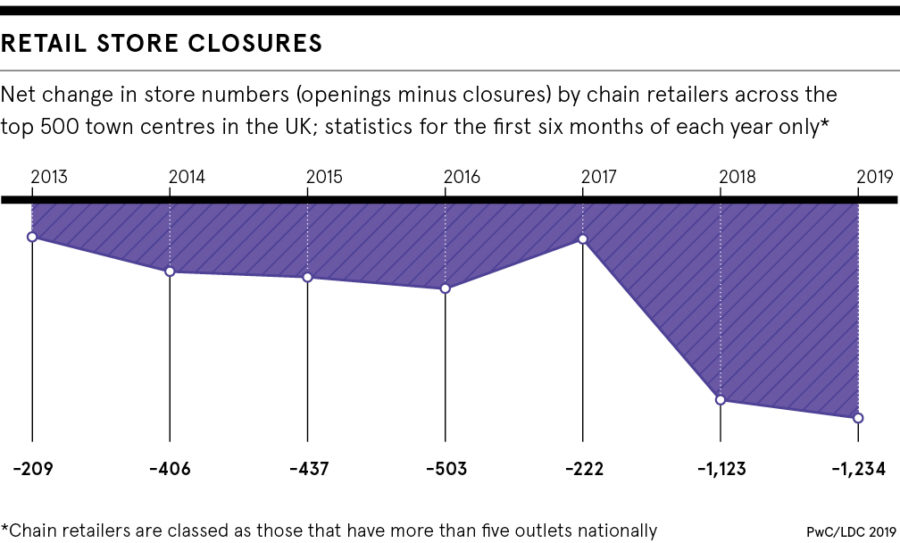Since the 2008 financial crash, the so-called death of the high street has been presented as a cold, inevitable fact. Experience in America, however, shows that with a bit of creativity, bricks-and-mortar retail may have life left in it yet. One of the most intriguing solutions so far has been to repurpose retail properties through the introduction of urban workspaces on site.
This trend has proved so popular, in fact, that real estate advisers JLL estimate that urban workspace in US retailers will grow at a rate of 25 per cent annually through 2023, reaching almost 3.4 million square feet.
“There’s no denying that the UK has its problems, but if you take what’s happening here and make it six fold, that’s what they’re dealing with in the States,” says Tim Vallance, head of investor services and retail chairman at JLL.
In spite of all this, he believes that the panic surrounding retail is misleading. “First and foremost, despite the headlines, UK retail is still growing, not shrinking. In 2019, consumers still spent £360 billion in shops and £404 billion online. With population growth and inflation, this could increase to £600 billion,” he explains.
Retail and leisure in Silicon Valley
A glimpse at Westfield in San Francisco shows how repurposing retail spaces could offer a significant boost for businesses, the self-employed and retail properties alike. Urban workspace company Bespoke’s millennial-friendly, plant-filled offices house freelancers and startups looking for like-minded entrepreneurs right within the hub of the mall.
The San Francisco branch is particularly special, explains Bespoke director Judith Shahvar, because it offers easy collaboration on projects that could improve the sector. “We’re really a retail technology ecosystem. We can connect C-level executive with Silicone Valley startups to help them gain new insights. It encourages a sense of community; it’s a feel-good space,” she says.
While these urban workspaces are open to anyone who wishes to rent them, Bespoke offers a discounted rate to entrepreneurs working on projects directly related to improving retail.
As Westfield recently opened a 500,000-square-foot expansion of the space, with a host of new retailers targeted at its influx of office workers, its approach seems to be working.

Could urban workspaces save UK high street?
So far there are no models replicating San Francisco’s urban workspace in the UK, but Vallance confirms that several retailers have already laid out plans to repurpose retail sites. And there’s no reason why it shouldn’t work out.
He says: “As well as London, which is fairly obvious, providing urban workspaces could be a great opportunity to attract new talent and customers to any of the big metropolitan shopping centres. This could work particularly well for any of the Russell Group university towns like Bristol, Liverpool and Manchester.”
The picture is slightly more complex for smaller towns, however. Gary Hemming, commercial lender at ABC finance, says the popularity of street food is an example of how shopping centre-urban workspace hybrids could breed exciting new businesses.
“These flexible working environments could well prove to be the breeding ground of tomorrow’s high street retailers, as we’ve seen in previous years with street food traders going on to open their own restaurant,” he says.
The temporary nature of startups means there’s still an element of risk involved. For major cities, this is not such an issue; for otherwise quiet market towns that have relied on the steady footfall for large, permanent department stores, it could be a very different story.
It could prove tricky for landlords too, adds Hemming. “The main issue as I see it is the temporary nature of the tenancies. While it benefits tenants, it does create a very high turnover and a lack of certainty for landlords,” he says.
“While I do think this will be a big part of the high street in the future, it may be tricky without middle men as it will take a property from being an investment into a more time-intensive business, which may not suit all landlords.”
JLL’s Vallance concludes: “There are going to be a lot of empty shops. But this really isn’t a disaster. It’s about accepting that to an extent; we need to let evolution do its work. We just need some clever people to think about how to use those spaces.”
